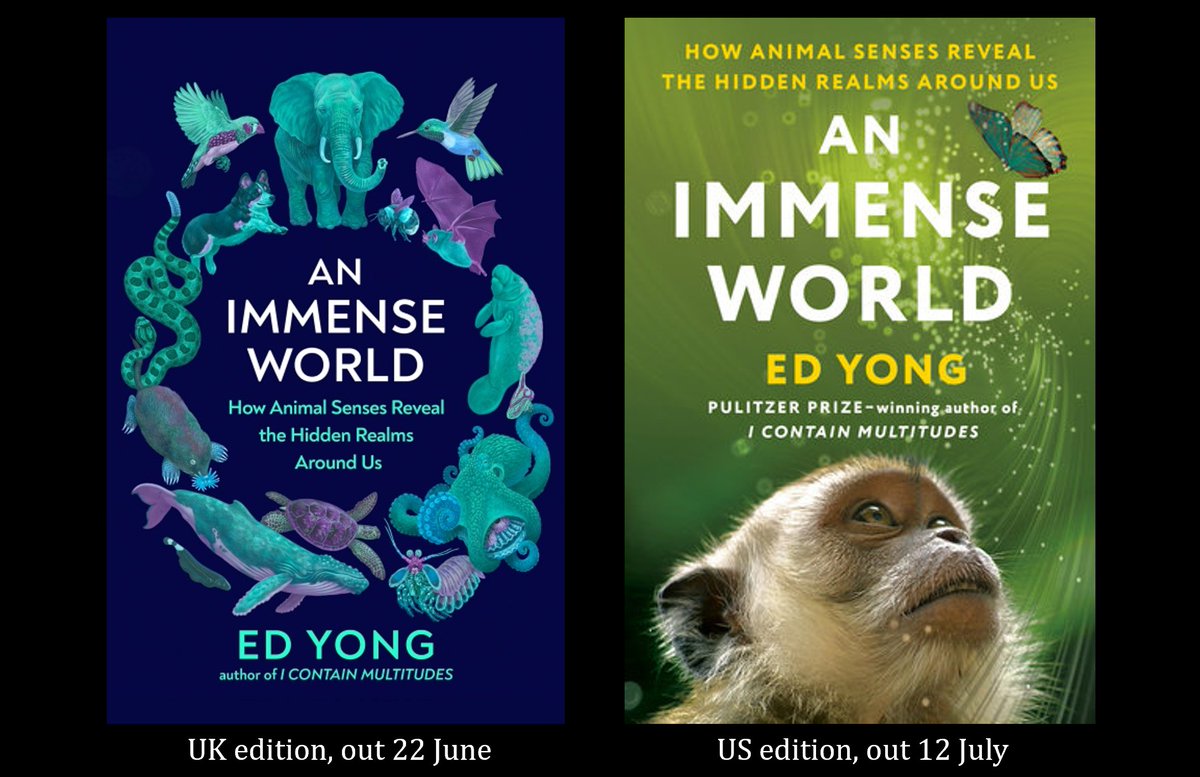
🚨I wrote about immunocompromised people—what they’ve been through, their frustrations, and their hopes.
This is a plea to think about those who don’t get to be done with the pandemic, and to prioritize them as a matter of moral and medical urgency. 1/
theatlantic.com/health/archive…
This is a plea to think about those who don’t get to be done with the pandemic, and to prioritize them as a matter of moral and medical urgency. 1/
theatlantic.com/health/archive…
First, dispense with the fiction that immunocompromised people are rare, secluded, or easy to identify.
There are millions of them. Most don’t live in a bubble. Most look healthy. You probably have friends & colleagues you don’t know are ICd. 2/
theatlantic.com/health/archive…
There are millions of them. Most don’t live in a bubble. Most look healthy. You probably have friends & colleagues you don’t know are ICd. 2/
theatlantic.com/health/archive…
A lot of immunocompromised people respond poorly to COVID vaccines & are mostly unprotected despite their shots.
They're in limbo, uncertain about the odds & consequences of infections. Meanwhile, the gulf between them & everyone else widens. 3/
theatlantic.com/health/archive…
They're in limbo, uncertain about the odds & consequences of infections. Meanwhile, the gulf between them & everyone else widens. 3/
theatlantic.com/health/archive…
Policies like mask mandates that helped immunocompromised folks are vanishing. Friends & colleagues are dismissing their remaining risk because of the misleading idea that Omicron is “mild”. 4/
theatlantic.com/health/archive…
theatlantic.com/health/archive…
To be simply ignored would be bad enough. To be *mocked* is even worse. Many immunocompromised people I spoke to are tired of pundits who equate risk-aversion with irrationality. They’re sick of being a throwaway clause in someone’s callous op-ed. 5/
theatlantic.com/health/archive…
theatlantic.com/health/archive…
So many immunocompromised people I spoke to feel abandoned. Several said that Biden’s speech about “a winter of severe illness and death” for unvaxxed people felt like a gut punch for them--vaxxed but still potentially unprotected. 6/ theatlantic.com/health/archive…
They’ve been made to feel that they’re holding society back. The opposite is true. Losing remote options forces many immunocompromised people into risky situations, "like asking someone who can't swim to jump into the ocean instead of trying a pool.” 7/ theatlantic.com/health/archive…
I spoke to 21 people for this story who are either immunocompromised or caring for those who are. I asked them what they want. Exactly no one said “permanent lockdown”. They want their lives back too. They need the world to be safer. 8/
theatlantic.com/health/archive…
theatlantic.com/health/archive…
Antivirals & antibody cocktails bring hope. But these are *really* hard to get & doses are pitifully short. Equitable, widespread access would go a long way to salving the feeling of being abandoned by a government that's so keen on biomedical panaceas. 9/ theatlantic.com/health/archive…
The people I interviewed mostly wanted structural changes—easier healthcare access, paid sick leave, mask mandates during surges, better ventilation, flexibility for work. All things that would improve the health of immunocompetent people too. 10/ theatlantic.com/health/archive…
I wouldn't be too onerous to build a world in which being immunocompromised requires fewer compromises. Disability is as much about society as biology. We can & should put in policies that make IC’d people less disabled in a world where COVID persists. 11/ theatlantic.com/health/archive…
If you don’t buy the moral argument, here’s a selfish one: Age weakens immunity. Respecting the needs of immunocompromised people isn’t about disproportionately accommodating some tiny minority. It’s about empathizing with your future self. 12/ theatlantic.com/health/archive…
There’s more in the piece. I’ve tried to address all the standard tropes--“but we didn’t make accommodations before”; “we can’t shut down society for a small fraction”—and why they’re problematic. That’s all in here. 13/ theatlantic.com/health/archive…
I hope you read this piece, even if—or, really, especially if—you feel more secure about your own risk. We cannot move forward as a society if we don’t care for those who shoulder the majority of the risk that remains. 14/ theatlantic.com/health/archive…
• • •
Missing some Tweet in this thread? You can try to
force a refresh






